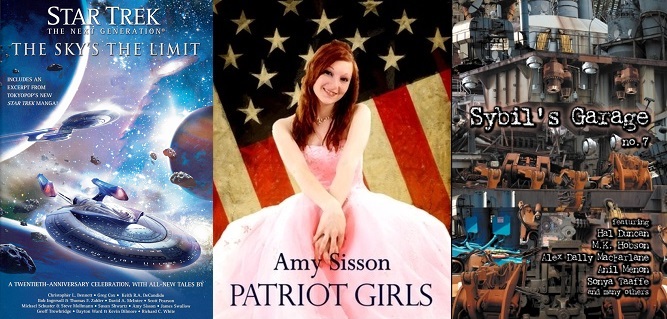Carolyn's not so different from the other people around her. She's sure of it. She likes guacamole and cigarettes and steak. She knows how to use a phone. She even remembers what clothes are for.
After all, she was a normal American herself once.
But she and the others aren't really normal. Not anymore. Not since their parents were murdered. Not since Father took them in.
Now, Father is missing -- maybe even dead -- and the Library that holds his secrets stands unguarded.
After all, she was a normal American herself once.
But she and the others aren't really normal. Not anymore. Not since their parents were murdered. Not since Father took them in.
Now, Father is missing -- maybe even dead -- and the Library that holds his secrets stands unguarded.
Although this description is accurate, it gives almost no idea of how strange and unusual this book really is. It also doesn't convey how dark this book is. I wasn't very far in when I realized The Library at Mount Char felt like a horror novel to me, and that's something I don't read very often. Not sure whether to continue, I flipped to the back cover again and re-read the description. Then I noticed one of the blurbs, in which Hugo and Nebula Award-winning author Nancy Kress calls the book "The most genuinely original fantasy I've ever read."
Wow. That's quite a statement by an author I admire.
So I kept reading, and after a while I found myself thinking, "Hey, this really is fantasy -- dark fantasy, to be sure, but it's not just horror."
Then I read further, and thought "But wow, this is really dark. And horrible." But I kept reading, because I wanted to find out what happened, and I was certainly never bored, just feeling a little squeamish about some of the dark bits.
And I am so glad I kept going because it turns out that this is one of the most original fantasy books I've ever read. (Thanks, Nancy Kress!)
I don't want to say too much about the plot, but just a little bit more of the set-up: Carolyn is one of twelve children that "Father" has taken in. In return, he has ordered each of them to study a particular "catalog" of knowledge, complete with periodic exams. Carolyn studies languages -- all languages that have ever been, including animal languages. Michael studies the animals themselves, and occasionally goes to live among them. David studies all forms of war and combat. Margaret studies death, while Jennifer studies healing, including the healing of death.
And so on. These children, now grown, have done nothing and still do nothing other than study, study, study. They vaguely refer to everyone outside of their world as "Americans" and cannot really function among them. And they are absolutely forbidden from sharing knowledge with each other from the various catalogs -- in fact, enforcement of this rule is where an important part of the "horror" in this book comes from.
The book isn't perfect, but then again, what is? My main quibble was that there were a couple of sections that brought in minor characters for brief scenes from their points-of-view. These scenes felt intrusive, and it seemed like I could "see" the effort behind the author trying to write, for instance, from the POV of an asshole rap star. There was also a spot, maybe 2/3 or 3/4 of the way through the book, when I thought "Really? The story's not ending here? It seems like it could (or should) end here, so am I going to like the rest of this book, or is it going to drag after this?"
And it turned out that it's everything that happens after that point that makes the book one of the most original fantasies I've ever read. But don't underestimate the stuff up to that point, either, because there's nothing wasted here, not even the rap star scenes that I didn't care for. The climax is set up perfectly. I finished reading this book about three in the morning, and then lay there thinking about how much it had surprised me.
I highly recommend this book, but I also think people should be warned: there are a lot of brutal scenes in it, including rape and torture. They're not gratuitous, but they are disturbing. But even though these are usually things I avoid, I anticipate that I'll be revisiting this book comes next year's awards season.
On a different note, I wanted to mention that I got this book through LibraryThing's Early Reviewers program. If you don't know LibraryThing, it's a social book cataloging website that's a bit like GoodReads but better, in my admittedly biased opinion.






No comments:
Post a Comment